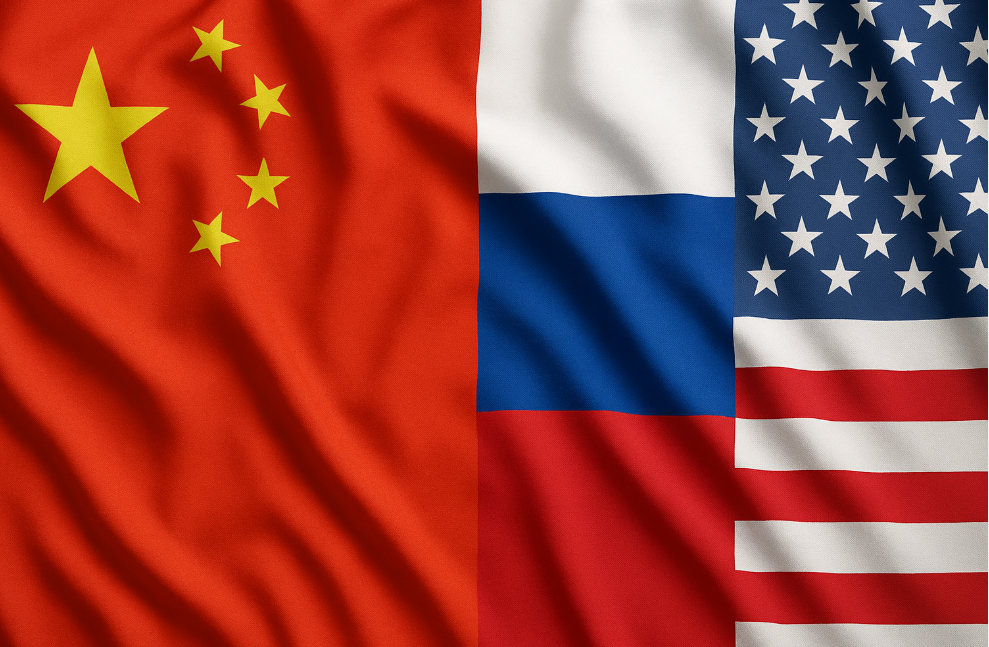China and Russia Slams USA at UN Meeting:China and Russia fiercely criticized the United States at an emergency United Nations Security Council meeting after the US launched direct strikes on Iran’s nuclear sites. The meeting witnessed sharp debates, strong condemnations, and heightened global tensions as world leaders debated the legality and consequences of America’s military action.
China and Russia Slams USA at UN Meeting After US Strikes on Iran’s Nuclear Sites
During the emergency meeting, Russia, China, and Pakistan jointly submitted a resolution calling for an immediate and unconditional ceasefire in West Asia. The 15-member council witnessed sharp exchanges, with several nations criticizing the U.S. actions as violations of international law and a threat to ongoing peace efforts.
UN Secretary-General António Guterres set a serious tone at the outset of the session. He described the U.S. bombing of Iranian nuclear sites as “a dangerous escalation in an already volatile region” and emphasized the urgent need to stop hostilities and return to diplomatic negotiations over Iran’s nuclear program. Stressing on the importance of credible and verifiable agreements, Guterres said,
“We need a comprehensive, verifiable solution that restores trust, including full access for IAEA inspectors.
The Non-Proliferation Treaty remains the cornerstone of international peace and security. Iran must fully respect its obligations.”
He further asserted that while the United Nations is ready to support all peaceful resolutions, peace itself cannot be imposed—it must be chosen.
Trump’s Bold Claim and Global Reactions
U.S. President Donald Trump, who ordered the strikes, made a bold assertion, claiming that America has completely destroyed Iran’s key nuclear facilities. Many analysts are calling this the most significant Western military strike on the Islamic Republic since the 1979 Iranian Revolution. The world now anxiously awaits Iran’s response to this unprecedented attack.
Russia and China were among the most vocal critics of the U.S. action. China’s UN Ambassador Fu Cong emphasized that,
“Peace cannot be brought to West Asia through the use of force. Dialogue and negotiation remain the only viable solutions. The diplomatic options on the Iranian nuclear issue have not been exhausted; the path to peace remains open.”
Russia’s UN envoy Vasily Nebenzia went even further, drawing parallels with the U.S.-led invasion of Iraq in 2003. He remarked,
“Once again, we are being asked to believe in American imaginary narratives, which have previously led to immense suffering for millions in West Asia. This proves that the U.S. has learned nothing from history.”
Iran, meanwhile, formally requested the UNSC meeting, categorizing the American strikes as an open and illegal act of aggression, and demanded the strongest possible condemnation from the Council.
The US, Israel, and Western Bloc Defend the Strikes
Acting U.S. Ambassador to the UN, Dorothy Shea, defended America’s actions, urging the Council to hold Iran accountable. She argued,
“It is time for decisive action. The Council must demand that Iran cease its attempts to annihilate Israel and halt its pursuit of nuclear weapons. For too long, Iran has concealed its nuclear activities and rejected our good-faith efforts for dialogue.”
Israel’s Ambassador to the UN, Danny Danon, echoed similar sentiments, asserting that rather than criticizing the U.S. and Israel, the world should praise their actions which, according to him, contributed to global safety.
The State of Iran’s Nuclear Facilities Post-Strike
According to International Atomic Energy Agency (IAEA) chief Rafael Grossi, preliminary inspections reveal visible craters at Iran’s Fordow nuclear enrichment site, located beneath a mountain. However, the full extent of underground damage remains undetermined at this point. Grossi added that the heavily fortified uranium storage tunnels in Isfahan and the Natanz facility were also targeted during the strikes.
Despite the severity of the bombings, the IAEA confirmed that no external radiation increases have been detected at any of the attacked sites so far.
What Happens Next?
While the global community watches with bated breath, it remains unclear when or whether the UNSC will vote on the joint ceasefire resolution. For any resolution to pass, at least nine affirmative votes are required without any veto from the five permanent members—the United States, Russia, China, France, or the United Kingdom.
This dramatic episode signals a potentially dangerous turning point in the long-standing tensions between the United States and Iran, with consequences that could reverberate far beyond West Asia.
Disclaimer:
This article is for informational purposes only and reflects the rapidly evolving geopolitical situation based on current reports. Readers are advised to follow official statements and verified updates for the most accurate information.

